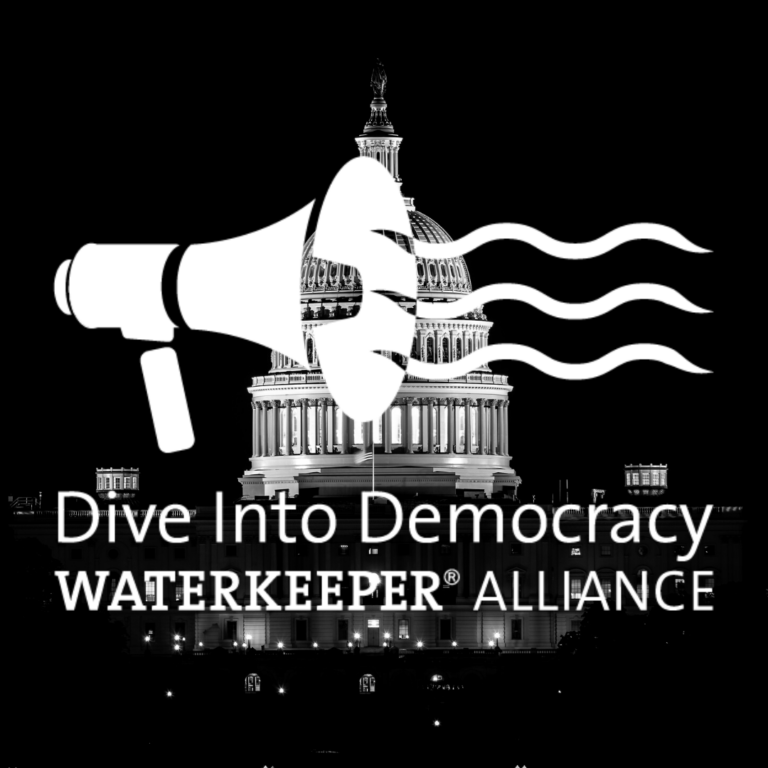Dive Into Democracy: 2022 Year In Review
By: Thomas Hynes

Through our Dive Into Democracy blog and email series, we informed and engaged our U.S. audience on the most pressing clean water issues of the day. In 2022, more than 32,000 people took over 73,000 actions to help protect our most valuable natural resource.
In January, shortly after the United Nations Intergovernmental Panel on Climate Change report highlighted the destructive impacts of methane emissions, we urged our supporters to leave comments with EPA demanding the strongest possible methane regulations.
In February, we encouraged our supporters to leave a comment with EPA to broaden the definition of Waters of the United States (WOTUS), in order to fully restore Clean Water Act protections for American waterways and ensure that every community can enjoy their right to clean water.
In March, we suggested our followers contact their members of Congress to support the Farm System Reform Act, legislation that would combat the monopolistic practices of the agricultural industry and finally rein in the scourge of confined animal feeding operations, or CAFOs, and protect clean water for countless communities.
Later in March, we directed our supporters to leave comments with EPA to reaffirm the Mercury and Air Toxic Standards rule to fully regulate coal- and oil-fired power plants’ emission of highly toxic mercury into the ecosystem and better keep our waterways and communities safe.
In April, we asked our readers to leave comments asking EPA to prioritize resources and financial support in order to bring communities into compliance with the Clean Water Act without compromising water quality or letting too much time unnecessarily lapse.
In May, we shined a light on nonpoint source pollution, the largest unaddressed source of water pollution, and encouraged our followers to leave comments with EPA suggesting the agency direct newly available infrastructure funds to assist communities with mitigation and remediation.
In June, we once again urged support for the Break Free From Plastic Pollution Act by asking our readers to contact their members of Congress to support this desperately needed legislation aimed at combating the plastic crisis that is overwhelming countless waterways and communities.
In July, on the heels of our global conference in the nation’s capital, we made the case for DC Statehood by highlighting the injustice faced by residents of Washington, DC, who don’t have representation in Congress and therefore have no say in how budgets are formed, which environmental legislation is passed, and who gets to sit on the Supreme Court.
In August, we urged our supporters to leave comments with EPA to fully restore Section 401 of the Clean Water Act in order to ensure states and Tribes have their say in what kind of fossil fuel projects get built in their communities and watersheds.
Later in August, we petitioned EPA to adopt national numeric nutrient limits to help stem the destructive tide of toxic algal blooms, dead zones, and other dangerous conditions for drinking water and recreation that destroy wildlife, cause billions of dollars in economic losses, and pose a real threat to people’s health and wellbeing.
In September, we rang the alarm on Senator Joe Manchin’s ‘dirty deal’ that would have rubber stamped fossil fuel projects, while silencing the voices of the communities facing the compounding threats of pollution and climate change. Thanks to the supportive actions of our supporters, this blatant giveaway to the oil and gas industry did not pass!
In October, we highlighted the harm from Per- and Polyfluoroalkyl Substances (PFAS), a group of emerging contaminants linked to several harmful public health impacts that are being found in waterways across the country. We urged our supporters to tell EPA to set commonsense discharge limits and stop contamination at the source.
In November, we encouraged our supporters to leave comments urging EPA to use the Clean Water Act to regulate concentrated animal feeding operations (CAFOs) as a way to limit untreated waste discharges into waterways and protect the countless frontline communities near these factory farm facilities.
As we come to the closer of another year, we want to thank you again for taking the time to support these important issues. Whatever threats to clean water the future may bring, we look forward to meeting those challenges head on alongside you.